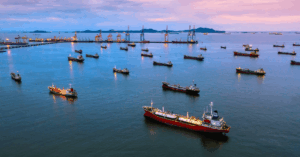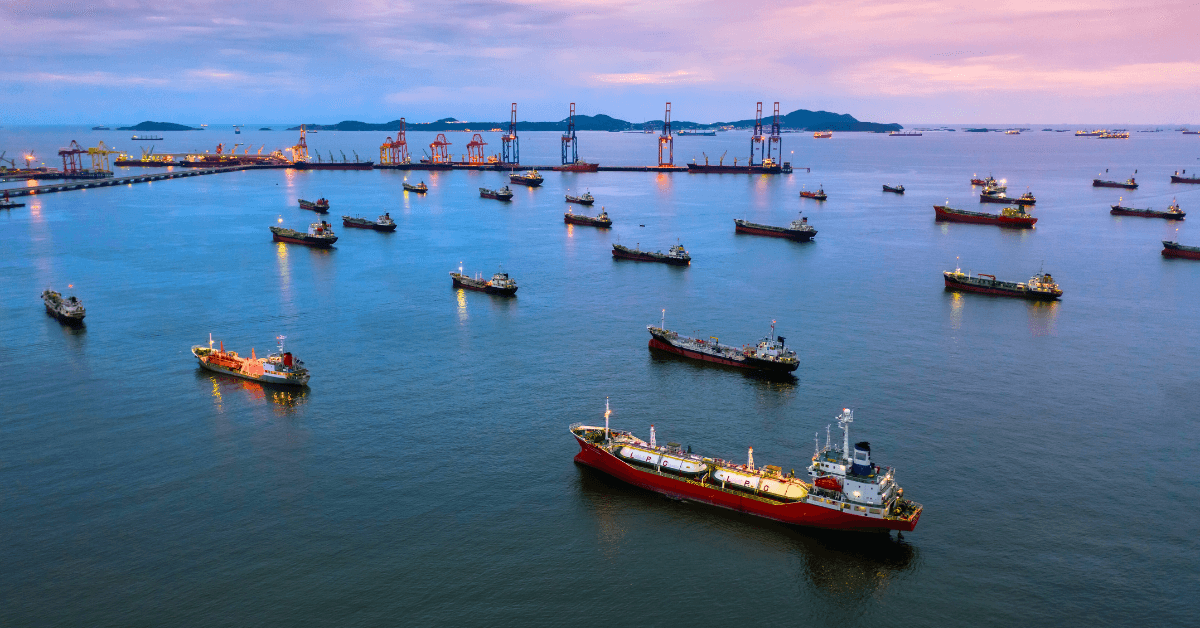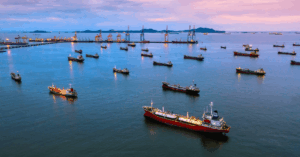
NYK Group Welcomes First Methanol-Powered Bulk Carrier ‘Green Future’
May 15, 2025
Wreck Of Dutch Ship Lost In 1857 Finally Found Off South Australian Coast
May 15, 2025

The European Union agreed to a new set of sanctions against Russia, targeting its shadow fleet of oil tankers and companies aiding its military operations on May 14, 2025. This is the EU’s 17th round of sanctions since Russia launched its full-scale invasion of Ukraine in 2022.
Diplomats from all 27 EU member states met in Brussels and approved the new package, which is expected to be officially adopted on May 20.
The sanctions will blacklist nearly 200 oil tankers suspected of helping Russia bypass restrictions on its oil exports. This number increases from the 73 vessels previously listed in February.
France’s Foreign Minister mentioned the number could be 193 tankers. The EU also plans to target companies in Vietnam, Serbia, and Turkey that have been accused of supplying materials to the Russian military.
Additionally, dozens of Russian individuals involved in cyberattacks, human rights violations, and sabotage within Europe will be added to the sanctions list. This list already has around 2,400 people and organisations facing visa bans and frozen assets.
European leaders have made it clear that Russia will face “massive sanctions” if it does not accept a 30-day ceasefire proposal supported by the United States.
German Chancellor Friedrich Merz urged Moscow to make real progress toward peace during the week, warning that failure to do so would result in additional European sanctions.
The talks between Russian President Vladimir Putin and Ukrainian President Volodymyr Zelensky are scheduled for May 15, in Istanbul, although Putin’s participation has not yet been confirmed. The U.S. President indicated he might attend if both leaders are present.
I welcome the agreement on our 17th sanctions package against Russia.
We are further restricting access to battlefield technology.
And we have listed an additional 189 shadow fleet vessels to target Russia’s energy exports.
This war has to end. We will keep the pressure high…
— Ursula von der Leyen (@vonderleyen) May 14, 2025
European Commission President Ursula von der Leyen publicly welcomed the agreement on the new sanctions package.
The new sanctions also plan to hit about 30 companies and 75 individuals linked directly to the Russian military. The package also includes measures against activities harming critical infrastructure, such as damage to subsea cables.
France’s Minister for Europe and Foreign Affairs linked the sanctions directly to Russia’s refusal to agree to a ceasefire. He predicted that if Putin continues to avoid the peace talks, the EU might impose even harsher sanctions that could severely damage Russia’s economy.
Recent industry reports, including one from S&P Global, highlighted that with the current oil price dropping below the EU’s $60 price cap, more Russian oil exports are moving on tankers linked to EU countries, not just the shadow fleet.
In response to the situation, the EU has set plans to end Russian energy imports by 2027 to completely phase out gas imports by 2030. The United Kingdom has also increased its sanctions, recently listing over 230 Russian-related tankers, showing coordinated efforts between the EU and UK to pressure Russia economically.
References: themoscowtimes, thehindu
Source: Maritime Shipping News


